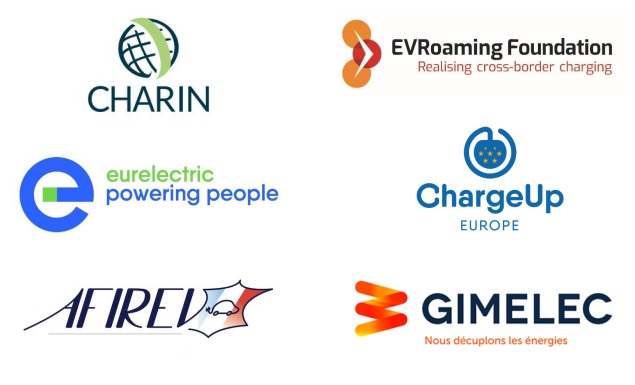Joint letter on AFIR card payment obligation - 09/02/2022
Open Letter: A blanket obligation for card payment terminals at electric re-charging stations does not put current or future consumer interests at its core and reduces accessibility of EV charging.
BRUSSELS, 9 FEBRUARY 2022
We as CharIN together with the undersigned welcome the publication of the Alternative Fuel Infrastructure Regulation (AFIR) in July 2021, a key pillar of the “fit for 55” package. As industry stakeholders from across the globe representing the whole electric charging eco-system, we believe in the importance of the transport sector’s contribution to sustainable energy and the ambition of climate neutrality and are cooperating closely as industry and with governments and civil society to achieve these goals.
We specifically welcome that AFIR has at its heart the ambition to understand industrial and economic realities and, more importantly, place the consumer at the centre of its focus. We thus support the possibility to recharge electric vehicles on an ad hoc basis using widely used payment instrument. But we are very concerned about an unnecessary burden on the e-mobility industry and the public funds which are essential to the charging infrastructure roll-out. It is the blanket obligation of installing card payment system terminals on all publicly accessible electric charging stations. Equally, we do not believe that this burden would place consumer interests at its core. Furthermore, it does not look at customer behaviour across the EU where preferences for payment systems vary.
Our view is that the benefit of a regulation on payment systems should be concentrated on the consumer. Furthermore, it should focus to accelerate the growth of the electric re-charging stations network across the EU. Indeed, we are concerned that the push for obligatory card payment system solutions without evaluating the existing realities in a rapidly emerging market does not demonstrate this required focus.
From a recharging industry perspective, it is our aim to make electric charging appealing to the consumer, thus placing them at the centre of our infrastructure roll-out strategies. Therefore, in the spirit of economic viability, card payment terminals are placed by operators in accordance with consumer necessity.
Furthermore, we also believe that the obligation of card payment systems creates additional electronic waste, both within the scope of retro-fitting and the additional equipment including the pin pad as conditioned in the Payment Services Directive II, when other technologies could provide a much better result on this aspect.
Finally, we are concerned that the AFIR states that all fast-charging stations (from 50 kW upwards) need to be retrofit, meaning that all the relevant infrastructure built to date and functioning successfully without a card payment system could have to be replaced or de-commissioned. This would prove a significant dent into the availability of charging stations for the consumers as such creating exactly the lack of confidence and consumer fear that the AFIR proposal seeks to avoid.
Our proposed solution:
AFIR will potentially come into force earliest at the end of 2022. With the review of AFIR set for end-2026, we see an opportunity for the European Commission to evaluate where the EU can further provide its support for the rollout by evaluating data of relevant consumer behaviour vs availabilities within that period. Until then, we suggest a moratorium of the obligation for card-payment terminals as set out in Article 5 of the AFIR proposal, to be further evaluated in 2026.
AFIR also proposes that relevant Member State regulatory authorities assess by mid-2024 (and every three years thereafter) the deployment and operation of recharging stations with a view of providing “recommendations in terms of type, supporting technology and geographical distribution in order to facilitate the ability of users to integrate their electric vehicles in the system.1” We believe this milestone together with reports by industry on market uptake statistics in relation to availability of payment systems will provide the basis for a more complete picture for decisions to be made in 2026.
On behalf of:

1 Article 14